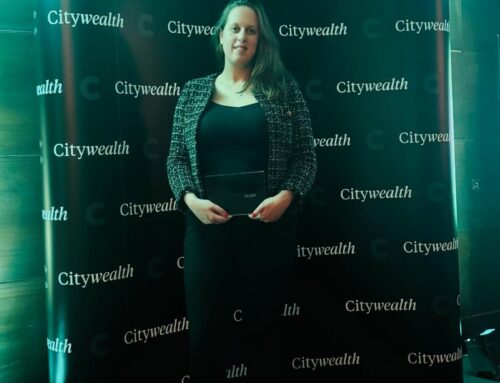For many separating couples, the question of who gets custody of a child in divorce is an extremely important one. The subject of child custody after divorce is an emotional area that can quickly turn a seemingly amicable separation into a challenging legal dispute.
While the term ‘custody’ has long since been replaced by the term ‘child arrangement order’, the fundamental principle of how best to care for children remains the same. Therefore, while we use the term ‘custody’ here, you should bear in mind that it no longer has a legal standing and is used mainly as it remains in popular usage.
Similarly, you may have also seen the terms ‘contact’ and ‘residence’ orders. These have also been replaced by the catch-all term ‘child arrangements order’. With this established, here are our thoughts on who gets custody of a child in divorce in the UK.
Parental Responsibility Vs Divorce Custody Rights
Before delving into the nitty gritty of child custody after divorce, it might first be useful to highlight the distinction between parental responsibility and child arrangement orders. Parental responsibility refers to your responsibilities as the parent of a child. These responsibilities include; providing a home, offering protection and ongoing maintenance, having standards of discipline, decisions about religious beliefs, taking care of necessary medical treatment, etc.
However, child arrangement orders are concerned mostly with where children live and spend their time. This does not supersede or negate parental responsibility, it merely considers the practicality of a child’s living arrangements. A partner with parental responsibility can apply to have custody of their children after divorce, but the result is largely dependent on family circumstances. In some cases, if there was a chance of harm for example, it may be deemed unsuitable for a child to live with one of the parents, despite them having parental responsibility.
Ultimately, if both partners have parental responsibility then they also both have equal rights regarding child arrangements. There is no one guaranteed outcome, and much will depend upon factors like past behaviour and how well the two sides can reach an amicable agreement during the divorce process.
The Types of Child Custody After Divorce
Until 2014, the question of who got child custody was often seen as one of the most pressing factors in a divorce or separation involving children. While the various types of custody now fall under the broader remit of the child arrangement order, the descriptions are still commonly used. The three forms of former divorce custody rights that are often referenced are:
- Sole Custody: Children live with one parent. This parent is solely responsible for making important decisions about their welfare. These decisions usually include schooling, healthcare and overseas travel, etc.
- Joint Custody: Children spend roughly equal time living at both parental homes and the parents have a shared responsibility for making key life decisions.
- Contact: In cases of sole-custody, where appropriate, it’s preferable for the child(ren) to maintain a relationship with the non-resident parent. The now-defunct contact order set out the terms of when, where, and how often these visits would take place.
As we’ve established, the term ‘custody’ no longer has much weight in a strictly legal sense. The courts tend to prefer for both parents to have a meaningful relationship with their children, and with no two relationships ever being quite the same, they do not tend to apply hard and fast rules towards shared responsibility. In this respect, what was known as ‘joint custody’ is regarded as the ideal scenario, as it gives children the likeliest chance of a balanced home life with both parents.
Child Arrangement Orders (CAOs)
When it comes to the welfare of children, the guiding principle of the courts remains the child’s best interests. As we’ve just established, there’s a preference for both parents to contribute equally, so it’s seen as being better if both sides can come to an amicable agreement without the need for legal intervention. However, if the relationship has become strained and reaching an agreement about living arrangements is proving difficult, this might not be possible without a Child Arrangement Order (CAO).
CAOs were introduced in April 2014 to replace Contact Orders and Residence Orders. If you’re unable to reach a childcare agreement with the other parent, you can apply for this type of order within three stages:
- Stage 1: With guidance from a trustworthy family law solicitor, you will need to prepare and submit an application for the order to the court. During the first hearing it’s common for the court to insist that both sides try to reach a mutual agreement at this early stage.
- Stage 2: Both parents will need to complete evidence forms regarding the behaviour of the other party. The Children and Family Court Advisory and Support Service (CAFCASS) could file their own report detailing their recommendations.
- Stage 3: If no agreement has been made, a judge will consider all of the evidence and make a formal ruling regarding long-term arrangements.
It’s worth noting that the further you progress through the three stages, the costlier the process becomes. Therefore if you’re keen to reach a timely resolution with a minimum of stress, you should prioritise a collaborative journey with your co-parent. If you receive comprehensive and clear legal advice and adopt a more open approach, the need for a CAO could be avoided altogether.
How is Child Custody Determined?
A situation where both parents have custody of a child is deemed to be most beneficial by the courts, wherever possible. This means the child or children will effectively have two homes and they spend roughly an equal amount of time with each parent. Nowadays these are called “shared care” orders. Because this outcome is beneficial to both children and parents, it is not necessary for the courts to be involved if the parents can agree the arrangements between themselves.
Of course, this is only really possible if both parents live a commutable distance apart. Should one decide to move to another part of the country or even abroad, this approach would be difficult. It would also only be realistic and achievable if both parents were civil to each other or on good terms.
Even if both parties are willing and able to reach their own agreement about custody, it remains important to enlist specialist family lawyers throughout the process. This will ensure that you receive solid guidance about your unique situation and that any agreement is fair and in the best interests of you and your child(ren).
Finally, if you’re engaged in dialogue but are unable to reach a consensus, your solicitor might also suggest mediation. An independent mediator will look to minimise any animosity and reach an impartial agreement that places the welfare of the family at the heart of the process. Mediation is seen by many as a final throw of the dice before pursuing a court order.
Is Child Custody After Divorce Always Settled in Court?
When is Going to Court for Child Custody Required?
As mentioned above, it’s not usually necessary for parents to seek court action when determining custody if they can agree things between themselves unaided or with the help of a mediator. However, there are some exceptions. For example, if the parents’ separation was acrimonious, they would be unlikely to come to a consensus regarding where their child should live.
The courts would also be required to intervene in situations where one parent believes it would not be safe for the other to have custody or spend time with the other parent.. This could be for reasons such as violence, alcohol abuse, or substance abuse.
Another reason why going to court for child custody would be necessary is if the child has parents with different nationalities and one party believes the other may attempt to take the child back to their home country without their permission.
If court action is necessary, you need to be sure you’re working with a solicitor who will tenaciously defend your interests and work tirelessly to achieve a satisfactory resolution.
How to Approach a Case Concerning Child Custody
In situations where court action is required, you may be concerned that your contact with your child will be a lot less than you would like. However, you should be rest assured that it is the courts’ pragmatic view that, where possible, a child should have equal input from both parents.
If you are still concerned, here are a few pointers which could help improve your chances of successfully navigating the family courts. :
- Be Involved: Ensure that, where possible and appropriate, you take steps to be involved with your child’s life and development. Examples of this include helping them with homework, engaging with teachers at school, or being present for special events like birthdays or sports days.
- Be Respectful: No matter how acrimonious your separation was, it’s important to respect the other parent. Your child invariably loves you both.
- Create a Safe Space: The welfare of your child should never be placed in jeopardy. Make your home as comfortable as possible for them when they are away from their usual place of residence. Have a separate bedroom especially for them and create a safe space for them emotionally.
- Make the Child Your Priority: It’s logical you will want to move on with your life after divorce, but you should always make sure your child remains your top priority. You should never allow new relationships to take precedent over the wellbeing of your child.
- Minimise Life Changes: As mentioned, you need to demonstrate you can provide a stable space for your child. You should therefore avoid if possible making major life changes which could disrupt this, such as moving cities or countries.
Who Gets Child Custody after Divorce?
The question of who gets custody of a child in divorce is not a simple one to answer. In truth, there are a lot of considerations to be made. While the default position is that it’s beneficial for the child to spend equal time with both parents, this is not always possible.
Therefore, the final decision will be made on a case-by-case basis — either amicably or by mediation or the courts. Whatever your circumstances, your first consideration should always be your child and their welfare. The courts will only do what they feel is in the best interests of the child and will carry that through any litigation as their overriding objective.
No matter if you are expecting an amicable arrangement or a bitter court battle, seeking specialist guidance from a solicitor is paramount. They will help you through what will ultimately be a difficult time and fight for your best interests.
Lowry Legal: The Experts in Family Law
Lowry Legal is a boutique law firm that specialises in helping clients with high net worth. We understand that the breakdown of a marriage or partnership can be a testing time — especially when children are involved. Whether you’re optimistic about reaching an amicable child care agreement or are expecting a contentious situation, we have the experience and skill to adapt to your circumstances.
We’re committed to putting your best interests at the centre of our strategy from start to finish. Along the way we’ll adopt a practical and jargon-free approach from the outset to ensure that you fully understand the options at your disposal and have a clear understanding of the stages towards a resolution.
To speak to one of our professional family lawyers, contact us today, or email enquiries@lowrylegal.co.uk.
Request a Callback
Leave a few details below and one of our team will be in touch to discuss how we can support you with your legal needs. Please note that we cannot offer Legal aid.














